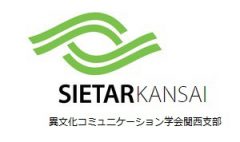Presenter: Professor Helena Meyer-Knapp (Evergreen State College, US.)
Date: Sunday, December 2, 2012 (2:00pm~4:00pm)
Place: Nishinomiya Daigaku Koryu Center (ACTA East Tower 6F,
Seminar Rm2), 2 minutes walk from Hankyu Nishinomiya Kitaguchi Station.
http://www.nishi.or.jp/~daigaku/info/index.html, Tel. (0798) 69-3155
Fee: Free
Language: English
Description of the presentation:
China, Japan and Korea have deep and ancient historical relationships. Bonds have been close in some periods and very distant at other times. For much of the time, connections and conflicts in NE Asia were beyond the perspective of most other nations. Europeans were in such sparse contact in medieval times that the view from far away was largely shaped by the opinions of isolated travelers, often from the Netherlands.
The situation today is very different. Japanese trade with China, China’s new economic globalization, relations between North Korea and the other NE Asian nations, conflicts over island territories from South East Asia to Russia, the hosting of the Olympic games, the great earthquake and tsunami of 2011, even Korean television dramas each attract the attention of ordinary citizens and political leaders from all over the world.
This presentation will explore a number of the key issues mentioned above, describing how recent public events, new trade systems and commercial products and popular culture have had an impact elsewhere in the world. The presentation will also explore in a limited way, a few key components of more recent history in relations among the three countries, to illuminate limitations in the knowledge base from which this global perspective views NE Asia.
Profile of the Presenter
Helena Meyer-Knapp has been a professor at The Evergreen State College, in the USA for many years, teaching about peace, politics and ethics, international relations and Asian and women’s studies. In 2001 and 2006 she was a research scholar and exchange professor at Hyogo Kenritsu daigaku
Her research centers on peacemaking and strategic studies. After a yearlong fellowship at Harvard’s Bunting Institute she authored the book Dangerous Peace-making (2003), which examines peace making in seven of the world’s war zones, and offers tools for resolving complex conflicts from local to international communities. She has been a Fulbright Senior Scholar in 2009, spending a semester teaching at the Graduate Institute of Peace Studies at Kyung Hee University in Seoul, South Korea.
